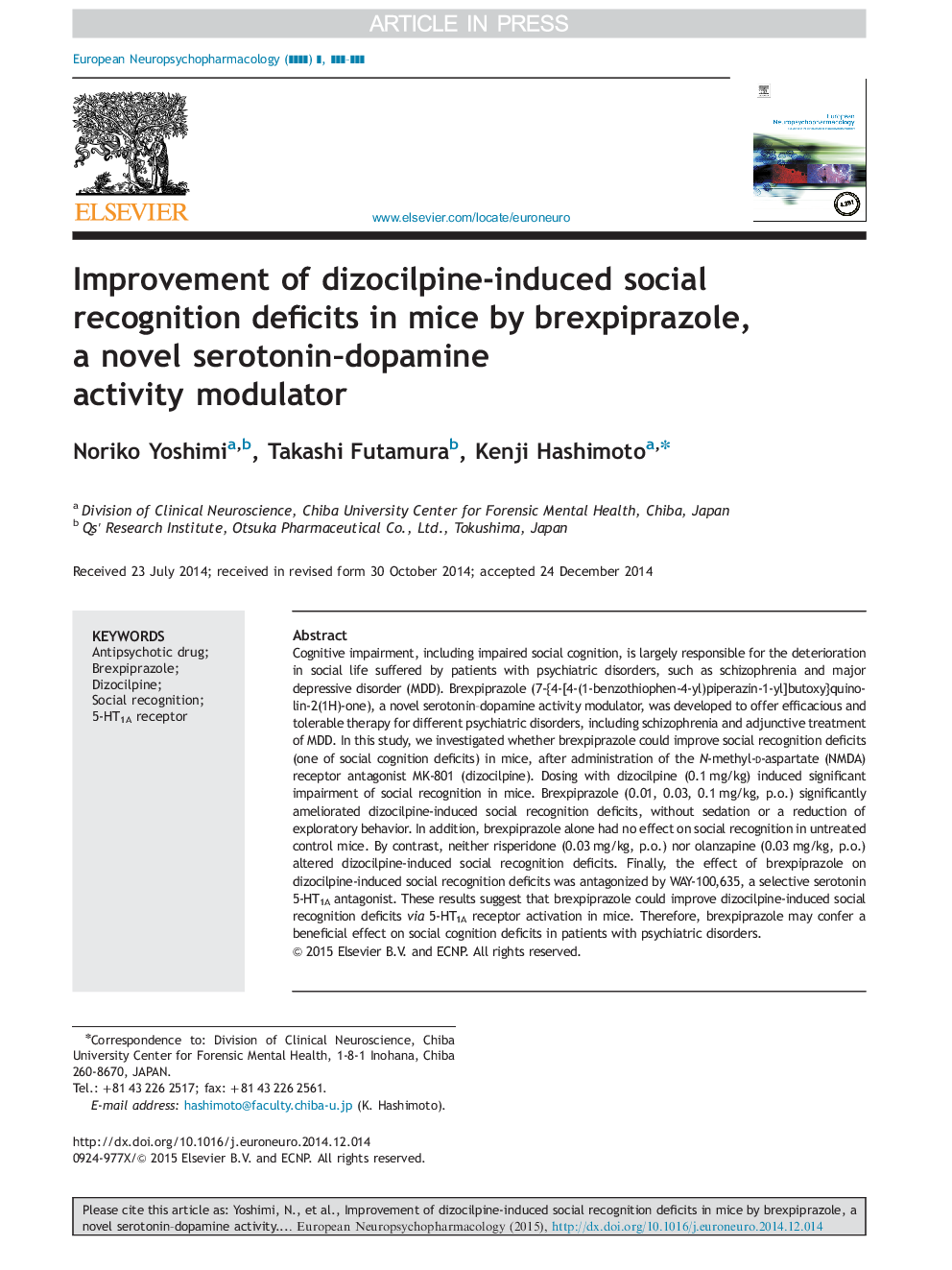| Article ID | Journal | Published Year | Pages | File Type |
|---|---|---|---|---|
| 10299096 | European Neuropsychopharmacology | 2015 | 9 Pages |
Abstract
Cognitive impairment, including impaired social cognition, is largely responsible for the deterioration in social life suffered by patients with psychiatric disorders, such as schizophrenia and major depressive disorder (MDD). Brexpiprazole (7-{4-[4-(1-benzothiophen-4-yl)piperazin-1-yl]butoxy}quinolin-2(1H)-one), a novel serotonin-dopamine activity modulator, was developed to offer efficacious and tolerable therapy for different psychiatric disorders, including schizophrenia and adjunctive treatment of MDD. In this study, we investigated whether brexpiprazole could improve social recognition deficits (one of social cognition deficits) in mice, after administration of the N-methyl-d-aspartate (NMDA) receptor antagonist MK-801 (dizocilpine). Dosing with dizocilpine (0.1Â mg/kg) induced significant impairment of social recognition in mice. Brexpiprazole (0.01, 0.03, 0.1Â mg/kg, p.o.) significantly ameliorated dizocilpine-induced social recognition deficits, without sedation or a reduction of exploratory behavior. In addition, brexpiprazole alone had no effect on social recognition in untreated control mice. By contrast, neither risperidone (0.03Â mg/kg, p.o.) nor olanzapine (0.03Â mg/kg, p.o.) altered dizocilpine-induced social recognition deficits. Finally, the effect of brexpiprazole on dizocilpine-induced social recognition deficits was antagonized by WAY-100,635, a selective serotonin 5-HT1A antagonist. These results suggest that brexpiprazole could improve dizocilpine-induced social recognition deficits via 5-HT1A receptor activation in mice. Therefore, brexpiprazole may confer a beneficial effect on social cognition deficits in patients with psychiatric disorders.
Related Topics
Life Sciences
Neuroscience
Biological Psychiatry
Authors
Noriko Yoshimi, Takashi Futamura, Kenji Hashimoto,
